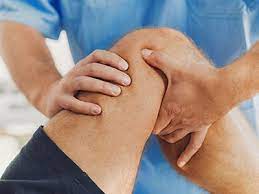Small fiber neuropathy (SFN) is a debilitating nerve disorder that causes burning, tingling, and stabbing pain—often in the hands and feet. While medical treatments are essential, what you eat can either accelerate healing or fuel inflammation. In this blog, we explore the profound connection between diet and small fiber neuropathy treatment, offering guidance on what foods to eat, what to avoid, and how nutrition impacts nerve regeneration.
The Role of Nutrition in Nerve Health
Nerves are delicate structures that require constant nourishment. Micronutrients such as B vitamins, antioxidants, and healthy fats support:
- Nerve signaling
- Myelin sheath repair
- Reduction of inflammation
- Mitochondrial function
When the body lacks these nutrients, it becomes harder for nerves to function optimally or heal.
How Poor Diet Can Aggravate SFN
Certain foods trigger systemic inflammation and oxidative stress, worsening neuropathy symptoms. Examples include:
- Refined sugars and carbs (white bread, pastries)
- Trans fats (fried foods, margarine)
- Excessive alcohol
- High sodium and processed meats
- Artificial sweeteners (in some cases)
These foods may spike blood sugar, increase free radicals, and damage small nerve fibers over time.
Anti-Inflammatory Foods That Support Nerve Healing
1. Leafy Greens
Spinach, kale, and swiss chard are rich in magnesium and folate—nutrients essential for nerve function.
2. Omega-3 Fatty Acids
Found in fatty fish (like salmon, sardines), flaxseeds, and chia seeds. Omega-3s reduce inflammation and support nerve repair.
3. B-Vitamin Rich Foods
- Vitamin B12: Found in eggs, meat, and fortified cereals.
- B1 (Thiamine): Present in legumes, whole grains, and seeds.
- B6: Found in bananas, poultry, and avocados.
These vitamins are crucial for preventing and reversing nerve damage.
4. Antioxidant-Rich Fruits
Berries, oranges, grapes, and apples combat oxidative stress that damages nerves.
5. Turmeric
This spice contains curcumin, a potent anti-inflammatory compound that may reduce nerve pain.
6. Nuts and Seeds
Almonds, walnuts, and sunflower seeds are rich in vitamin E and magnesium—both important for nerve health.
Supplements That May Help
While food is the best source of nutrients, supplements may be necessary, especially in cases of:
- Vitamin B12 deficiency (common in vegetarians or older adults)
- Magnesium deficiency
- Alpha-lipoic acid for antioxidant protection
- Acetyl-L-carnitine to improve nerve function
Always consult a healthcare professional before starting any new supplement.
The Importance of Glycemic Control
High blood sugar is a leading cause of nerve damage. A low-glycemic diet helps stabilize blood sugar and reduces nerve stress.
Best practices:
- Eat whole grains like quinoa and brown rice
- Choose legumes over refined carbs
- Pair carbohydrates with protein or healthy fats
- Avoid sugary drinks and snacks
Hydration and Nerve Health
Dehydration impairs circulation and may worsen nerve pain. Aim for 8–10 cups of water per day, more if you’re active or live in a hot climate.
Sample 1-Day Anti-Inflammatory Meal Plan for SFN
- Breakfast: Oatmeal with chia seeds, blueberries, and almond butter
- Snack: Handful of walnuts and a boiled egg
- Lunch: Grilled salmon salad with spinach, avocado, and olive oil vinaigrette
- Snack: Carrot sticks with hummus
- Dinner: Quinoa stir-fry with broccoli, tofu, and turmeric
- Evening: Herbal tea with a piece of dark chocolate (85% cacao)
Lifestyle Tips That Complement Diet
1. Exercise
Movement improves circulation and supports nerve regeneration.
2. Stress Management
Chronic stress contributes to inflammation. Incorporate yoga, meditation, or deep breathing.
3. Sleep
Nerve repair happens during rest. Aim for 7–9 hours of quality sleep.
FAQs About Diet and Small Fiber Neuropathy
Q1: Can food alone cure small fiber neuropathy?
No. While diet can significantly improve symptoms and support healing, it should be part of a broader treatment plan including medical management.
Q2: Is keto good for neuropathy?
Some studies suggest that low-carb, high-fat diets (like keto) may benefit diabetic neuropathy, but it’s not ideal for everyone. Talk to a dietitian before starting.
Q3: Should I avoid nightshades like tomatoes and peppers?
Only if you’re sensitive. Most people tolerate nightshades well, and they offer antioxidants.
Q4: Can fasting help with nerve healing?
Emerging research suggests intermittent fasting may improve mitochondrial health, but results vary.
Q5: How soon will dietary changes show results?
Some people feel relief within weeks, but significant improvement can take 3–6 months of consistent changes.
Final Thoughts
When it comes to small fiber neuropathy treatment, food truly is medicine. By adopting an anti-inflammatory, nutrient-rich diet, you give your body the building blocks it needs for nerve repair. Combined with medical care, physical activity, and a healthy lifestyle, dietary choices can greatly enhance your healing journey.





Comments